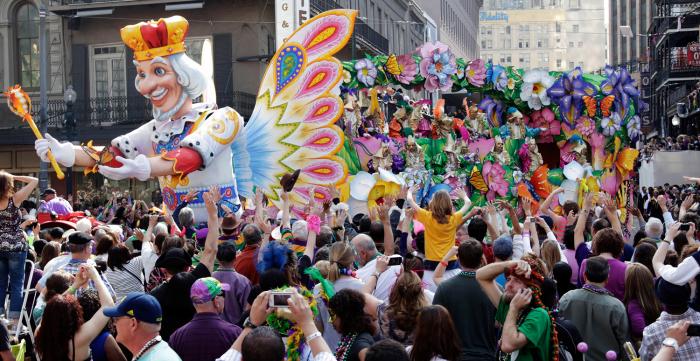 Dear readers, Catholic Online was de-platformed by Shopify for our pro-life beliefs. They shut down our Catholic Online, Catholic Online School, Prayer Candles, and Catholic Online Learning Resources essential faith tools serving over 1.4 million students and millions of families worldwide. Our founders, now in their 70's, just gave their entire life savings to protect this mission. But fewer than 2% of readers donate. If everyone gave just $5, the cost of a coffee, we could rebuild stronger and keep Catholic education free for all. Stand with us in faith. Thank you. Help Now >
Dear readers, Catholic Online was de-platformed by Shopify for our pro-life beliefs. They shut down our Catholic Online, Catholic Online School, Prayer Candles, and Catholic Online Learning Resources essential faith tools serving over 1.4 million students and millions of families worldwide. Our founders, now in their 70's, just gave their entire life savings to protect this mission. But fewer than 2% of readers donate. If everyone gave just $5, the cost of a coffee, we could rebuild stronger and keep Catholic education free for all. Stand with us in faith. Thank you. Help Now >
7 Fun facts about Fat Tuesday and Mardi Gras celebrations
FREE Catholic Classes
Mardi Gras is French for Fat Tuesday; it comes directly before Ash Wednesday. "Mardi Gras is a raucous celebratory affair that serves as a final shebang before the 40-day abstinence of Lent," explains The Huffington Post.

Mardi Gras first became a holiday in 1582.
Highlights
Catholic Online (https://www.catholic.org)
3/4/2025 (10 months ago)
Published in U.S.
Keywords: Mardi gras, Fat Tuesday, facts, fun facts, celebration, Ash Wednesday, Lent
LOS ANGELES, CA (Catholic Online) - Amidst all the metallic-colored beads, loud music and parades, the foundation for the holiday often gets lost.
1. "Mardi Gras, or 'Fat Tuesday,' is the culmination of Carnival, which by its Latin roots means the 'removal of flesh/meat,'" explains Author Greg Tobin to The Huffington Post. Christians often abstained from dairy and meat products altogether.
2. In some countries, the day is called "Shrove Tuesday" after shrive, which means "to confess." "This refers to the unofficial custom of going to confession on the Tuesday before Ash Wednesday as a way of shedding sin and guilt before the spiritual journey of Lent," stated The Huffington Post.

3. Mardi Gras became a holiday in 1582, when Pope Gregory XIII placed it on his Gregorian calendar the day before Ash Wednesday. It first appeared in North America in the late 17th century with the LeMoyne brothers' claim on Louisiana.
4. Although it is most famously celebrated in New Orleans and Rio de Janerio, Mardi Gras is a highly international holiday. Major celebrations take place in Germany (as "Karneval"), Italy (as "Martedi Grasso"), Trinidad (as "J'Ouvert"), and Mexico (as "Martes de Carnaval"), according to The Huffington Post.

5. The traditional colors of Mardi Gras and the beads started with the king of the first daytime Carnival in 1872. "He picked the colors to represent royalty: purple for justice, gold for power and green for faith," stated Richmond Times-Dispatch.
6. The masks worn during the celebrations were to escape class constraints.

7. Mardi Gras celebrations now have a Rex, "the king of the Carnival. Rex became a part of New Orleans' Mardi Gras celebration in 1872. Every year, the city chooses a new Rex, someone well-known in New Orleans, to receive the symbolic Key to the City," explained International Business Times.
---
'Help Give every Student and Teacher FREE resources for a world-class Moral Catholic Education'
Copyright 2021 - Distributed by Catholic Online
Join the Movement
When you sign up below, you don't just join an email list - you're joining an entire movement for Free world class Catholic education.
An Urgent Message from Sister Sara – Please Watch
- Easter / Lent
- 5 Lenten Prayers
- Ash Wednesday
- 7 Morning Prayers
- Mysteries of the Rosary
- Litany of the Bl. Virgin Mary
- Popular Saints
- Popular Prayers
- Female Saints
- Saint Feast Days by Month
- Stations of the Cross
- St. Francis of Assisi
- St. Michael the Archangel
- The Apostles' Creed
- Unfailing Prayer to St. Anthony
- Pray the Rosary
![]()
Copyright 2026 Catholic Online. All materials contained on this site, whether written, audible or visual are the exclusive property of Catholic Online and are protected under U.S. and International copyright laws, © Copyright 2026 Catholic Online. Any unauthorized use, without prior written consent of Catholic Online is strictly forbidden and prohibited.
Catholic Online is a Project of Your Catholic Voice Foundation, a Not-for-Profit Corporation. Your Catholic Voice Foundation has been granted a recognition of tax exemption under Section 501(c)(3) of the Internal Revenue Code. Federal Tax Identification Number: 81-0596847. Your gift is tax-deductible as allowed by law.






